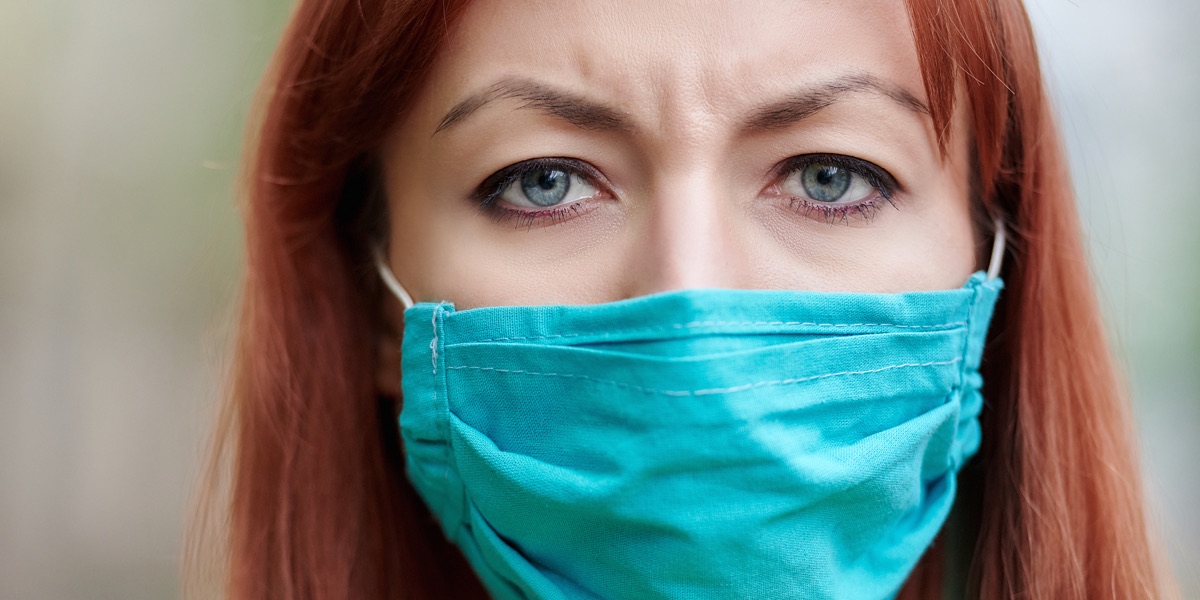FOR IMMEDIATE RELEASE
September 1, 2021
(Santa Rosa, CA) Since the onset of the pandemic, some COVID-19 patients have developed severe “de novo” (new) genitourinary symptoms, including urinary frequency greater than 13 voids per day, as well as the need to urinate 5 or more times per night to relieve discomfort in their bladder.(1,2)
Cytokine Storm Can Cause Bladder & Kidney Injury
Systemic inflammation and an unusually high inflammatory response (aka cytokine storm syndrome) has been found in severe cases of COVID-19. Not surprisingly, these increased inflammatory markers (cytokines) have also been found in the urine and bladder of some COVID-19 patients. Cytokines can cause damage to the urothelium triggering the classic symptoms of urinary frequency, urgency, pressure and/or pain. Unfortunately, some clinicians have mistakenly assumed that these patients were struggling with a routine bacterial infection.(3) The cytokine storm may also result in kidney injury.(4)
Viral Infection In The Bladder?
In the most severe patients, there is concern that COVID-19 could also be infecting the bladder wall. Though uncommon, other viral infections (HIV, HTLV and polyoma BK) have been known to cause urinary symptoms.(5,6,7) Fourteen studies have found active COVID-19 virus in urine samples, more commonly in patients with moderate or severe disease.(8)
IC Patients Struggle With Flares During & After COVID
“For patients who already struggle with urinary symptoms such as interstitial cystitis, COVID-19 has caused severe flares in their symptoms leaving patients desperate for relief” offered Jill Osborne founder of the Interstitial Cystitis Network. “Our survey of more than 90 IC and COVID-19 patients found that 74% reported that their IC symptoms were exacerbated, even patients who had been in remission for years. 34% reported that their pain increased severely while 42% reported a moderate or slight increase in pain. Urinary frequency showed similar changes.” (9)
IC Awareness Month Begins
September 1st launches the annual IC Awareness Month campaign. We want these patients to know that COVID Associated Cystitis is real and should be treated with compassion. We encourage patients to share this information with their clinicians. While many of the IC self-help tips and treatments could be helpful for some patients, IC patients with long haul Covid-19 may need more aggressive care and pain therapies. There is no shame in having urinary symptoms.
Learn more about IC Awareness Month at: www.icawareness.org
References:
- Lamb L, et al. COVID-10 inflammation results in urine cytokine elevation and causes COVID-19 associated cystitis (CAC). Medical Hypotheses 145 (2020) 110375
- Dhar N, et al. De Novo Urinary Symptoms Associated with COVID-19: COVID-19 Associated Cystitis (CAC). J Clin Med Res 2020.
- George S, et al. Evidence for SARS-CoV-2 spike protein in the urine of COVID-19 patients. Published online April 12, 2021. Kidney360.
- Mumm J, et al. Urinary frequency as a possibly overlooked symptom in COVID-19. Does SARS-CoV-2 Cause Viral Cystitis? European Urology 78(4). October 1, 2020.
- Breyer BN, et al. HIV status is an independent risk factor for reporting lower urinary tract symptoms. J Urol 2011;185(5):1710–5.
- Castro NM, et al. Urinary symptoms associated with human T-cell lymphotropic virus type I infection: evidence of urinary manifestations in large group of HTLV-I carriers. Urology 2007; 69(5):813–8.
- Imlay H, et al. Presentation of BK polyomavirus–associated hemorrhagic cystitis after allogeneic hematopoietic cell transplantation. Blood Adv 2020;4(4):617–28.
- Kashi A, et al. Urinary viral shedding of COVID-19 and its clinical associations: A Systematic Review and Meta-analysis of Observational Studies. Urol J 2020 Sep 5;17(5):433-441
- Osborne J. New Survey Finds COVID-19 Significantly Worsens IC Symptoms. Interstitial Cystitis Network Blog January 7, 2021

